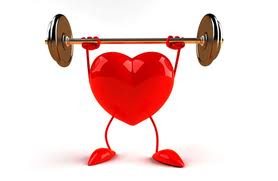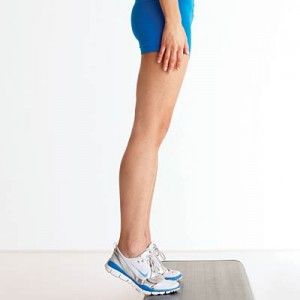Test how much you know about how physical activity affects your heart. The following statements are either true or false. Decide what you think, then compare your responses with the answers given below
- Regular physical activity can reduce your chances of getting heart diseases
Heart disease is almost twice as likely to develop ion inactive people, so this is true. Being physically inactive is a risk factor for heart disease along with cigarette smoking, high blood pressure, high blood cholesterol and being overweight. The more risk factors you have, the greater your chance of getting heart disease. Regular physical activity(even mild to moderate exercise) can reduce this risk.
- Most people get enough physical activity from their normal daily routines
Since most people are very busy but not very active, this statement is false. Every adult should make a habbit of getting 30minutes of low to moderate levels of physical activity daily. This includes walking, gardening and walking up stairs. If you are inactive now, begin by doing a few minutes of activity each day. If yiu engage in some activity only once in while, try to work something into your routine every day.
- Exercise programmes do not require a lot of time to be very effective
It is true – it take only a few minutes a day to become more physically active. If you don’t have 3o minutes in you schedule for an exercise break, try to find 15minutes periods of even three 10minutes periods. Once you discover how much you enjoy these exercise breaks, they will become a habit you can’t live without
- People who need to lose some weight are the only ones who will benefit from regular physical activity
This statement is false. people who engage in regular physical activity experience many positive benefits. Regular physical activity gives you more energy, reduces stress, helps you to relax, and helps you to sleep better. It helps to lower high blood pressure and improves blood cholesterol levels. Physical activity helps to tone your muscles, burns off calories to help you lose extra pounds or stay at your desirable weight, and helps control your appetite. It can also increase muscles strength, help your heart and lungs work more efficiently and let you enjoy your life more fully
- All exercises gives you the same benefits
False again. Low intensity activities- if performed daily- can have some long term health benefits and can lower your risk of heart disease. Regular, brisk and sustained exercise for at least 30minutes, 3 to 4times a week, such as brisk walking, jogging, or swimming, is necessary to improve the efficiency of your heart and lungs and burn of extra calories. These kinds of activities are aerobic. Other activities may give you other benefits, such as increased flexibility or muscle strength, depending on the type of activity.
- The older you are, the less active you need to be
Although we tend to become less active with age, physical activity is still important, so this is flase. In fact, regular physical activity in older people increase their capacity to continue everyday activities. In general, older people benefit from regular exercise just as a young people do. What is important, no matter what your age, is tailoring the activity programme to your fitness level
- It does not take a lot of money or expensive equipment to become physically fit
It is true – many activities require little or no equipment. For example, brisk walking requires only a comfortable pair of shoes. Also, many leisure center have large pool and a large number now offer inexpensive gym and weight training facilities and physical activity classes. Check with your local council to see what sports facilities and activities are available in your area
- You should always consult a doctor before starting a physical activity programme
This is true. You should ask your doctor before you start (or greatly increase0 your physical activity if you: have a medical condition such as high blood pressure; have pain or pressure in the chest and shoulder area; tend to feel dizzy or faint; get very breathless after mild exertion; are middle -aged or older and have not been physically active or plain a fairly vigorous activity programme. If none of these apply, start slowly and get moving .
